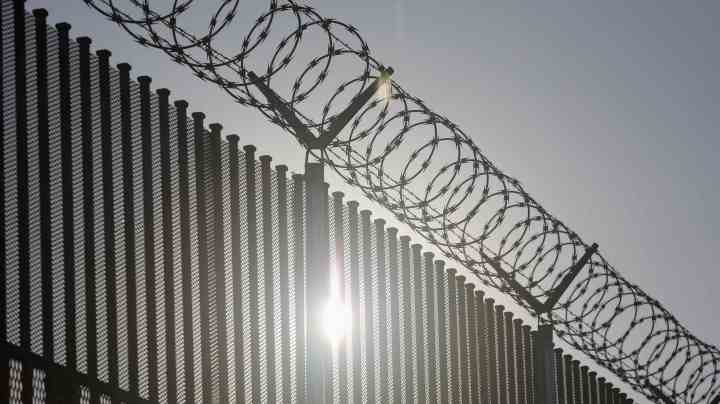PHOTOS: The Belongings Discarded at a Border Detention Center

The border fence between the United States and Mexico. Photo by John Moore/Getty Images
Tooth brushes, soap bars, and silverware were just some of the things that Tom Kiefer – a former janitor at the U.S. Customs and Border Patrol facility in Ajo, Arizona – saw confiscated on a daily basis from those trying to cross the U.S.-Mexico border. “Those who have entered the U.S. illegally, their personal possessions and belongings too easily get lost as they are processed and travel through the U.S. Customs and Border Patrol system,” Kiefer said, according to CNN.
After questioning why food, relatively new items, and pictures of loved ones got thrown away by Border Patrol, he started the El Sueño Americano Project. He wanted to show that when these items are treated like “non-essential personal property and discarded,” it dehumanizes the people who have been stripped of their belongings. Kiefer worked at the detention center between July 2003 and August 2014, and at one point, he was able to take the food – an estimated sixty tons – to the community food bank. Around 2013, he was no longer allowed to donate the food.
Things like Colgate, Snickers, and rosaries give a little insight into the lives of these immigrants. But when seen together in a pile, it’s a harrowing tale of the difficulties that come with crossing the border. Through his collection of images, Kiefer tries to give more information about why someone might have had something. “Different types of gloves for multiple purposes. The desert and mountain terrains along the U.S./Mexico border varies greatly with different types of brush and vegetation. Smugglers also handle bales of marijuana often covered in rough material. All gloves are considered non-essential personal property and discarded,” he wrote, according to one image.
Shoelaces are also taken away because they are seen as a possible weapon, meaning that as the detainees go through the court system and eventually home, they have to walk with shoes that have no laces.
Check out the images here.